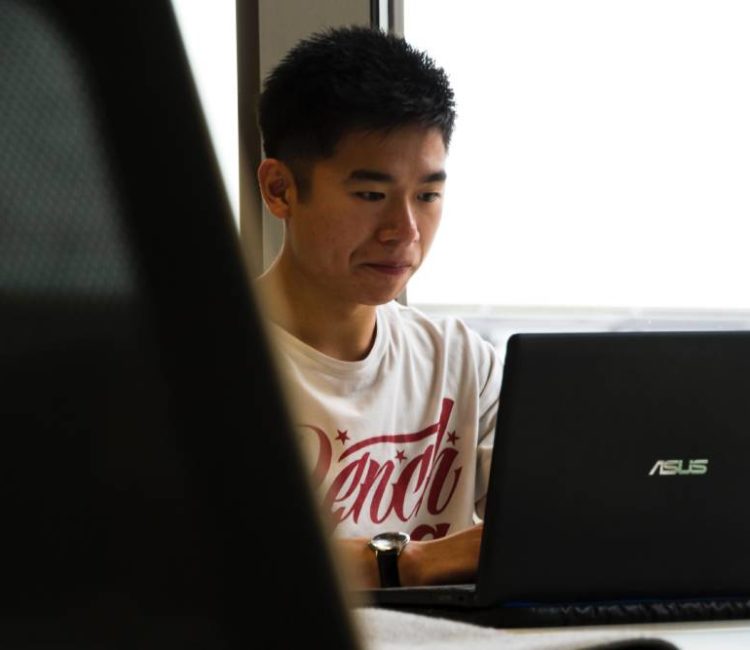It is important for the manager to develop the most effective questions before a successful job interview. These are the questions that will be asked of every job applicant. Their answers determine whether they are considered for a job offer.
Sometimes developing questions for a job interview is not a piece of cake because the successful outcome for conducting job interviews is hiring the best applicant.
In this case, HR managers should take into account particular rules and points to be included.
Basic qualifications of the job applicant
Typically, the most important information is the confirmation of the applicant’s ability to do the actual work.
Review the main responsibilities of the position and ask the applicants to explain how their experience is a ‘good fit for each one.
Prepare to explore potential and transferable skills if there is not an exact fit.
Ask for specific information about any diplomas, professional development, or specialised skills.
Ask what the applicants think their strengths and challenges are in the work they do now.

Include one or two ‘what if’ questions that test the applicant’s response to hypothetical situations. For example, ‘What would you do if a colleague was taking over one of your largest accounts?’
Personal attributes for the job
It is important to understand how the applicant, as a person, would fit into the work unit. If the job description does not have the desirable personal attributes, the manager can take the time to develop a list.
This might include communication skills, ability to work as part of a team, organisational skills, reliability, and anything else that is appropriate for both the job and the organisational culture.
Here are suggestions for the questions that will elicit that information.
Develop questions that allow the applicants to talk about the kind of work team they prefer.
- ‘How would you describe an ideal work team?’ or ‘What does it mean to you to work as part of a team?’
- Find out what the applicant expects from a manager. ‘How would you describe an effective supervisor/manager?’
- Assess how the applicant communicates during the interview.
- Try to get a sense of how they view themselves in the workplace. ‘How do you think your colleagues would describe you?’
- Check on skills and experience in organising work and time management. ‘How do you organise your workday?’
Be prepared with follow-up questions if the answers are too brief.
The career path of the interviewee
A manager might want to know if the applicant wants to get a particular position or do they want out of their current job. You should provide an opportunity for the interviewees to share their career plans, using a question like one of the following.
- ‘What do you want from the next job that you are not getting in your current position?’
- ‘In what way do you feel your present job has developed you to take on even more responsibility?’
- ‘Where do you see yourself three years from now?’
There are no right or wrong answers to these questions. The manager will know whether the applicants’ motivation is acceptable to them and how it might affect their ability to do the job well.
Written exercise or demonstration of job skills
If appropriate, allow the applicant to prove certain key knowledge or job skills. This is usually done after the actual interview.
The following are examples of this kind of 30-40 minute exercise.
Settle the applicants into a private space with a computer. Give them a copy of a brief report on a topic common to this kind of work and ask them to prepare notes of the key points in a format that could present to senior management.
Provide statistics or financial data and ask the applicants to format it into a user-friendly document.
Have the applicant prove their ability to use specialised equipment to do certain tasks. This should be a typical assignment for this job.
This kind of exercise gives the manager a glimpse of how the applicant can do the job and his approach to work.
Common errors in preparing interview questions
To have an effective employment interview try to avoid the following.
The answers are ‘yes’ or ‘no’. For example, not ‘Do you know how to do this task?’, but rather, ‘How would you do this task?’
Leading questions that suggest the ‘right’ answer to the applicant. For example, ‘You don’t mind working overtime, do you?’
Questions that reveal the interviewer’s attitude. For example, ‘I think that’s a good way to get the job done. What do you think?’
Questions that are already asked and answered on the application form or resume. Instead, the interviewers can acknowledge that they have already seen the information, but would like clarification or additional examples.
Questions that are illegal because of discrimination. The interviewer should check with HR staff who know exactly what legislation covers job interview questions in their part of the world.
Taking the time to develop effective questions will help the manager avoid these pitfalls.
Timing
Plan the timing of the interview. Most employment interviews last 45-60 minutes, not including a written or practical assignment. This means it is important to prepare questions carefully, calculate the time, and then consider how many minutes should be allotted to each one.
The interviewer that follows the above guidelines will be well prepared to cover all the important areas of each job applicant’s experience. This results in being able to conduct a successful job interview that is fair, impartial and results in the successful hiring of the best applicant.

Image: Pexels
Conducting effective job interviews to select the best applicant
Effective job interviewers use their questions to engage the applicant, listen to responses, and gather enough information to select the best employee.
The vacant job was posted. The applications have been submitted. The manager and someone from Human Resources has developed appropriate job interview questions. They have reviewed all the applications and selected five or six to be called for an interview.
Schedule the employment interview
The phone call or email to schedule the job interview sets the tone for the entire process.
If possible, offer a choice of dates and times. It is not always easy for an applicant to take time away from a current job.
Let the applicant know who the interviewers are and how long the interview will be. This is also the time to inform the applicant of any written test or demonstration of skills that will be conducted after the interview and how long it will take.
Give the applicant a contact name and phone number in case there is a last-minute problem.
Leave adequate time between interviews so the applicants are not running into each other. For example, leave at least 75 minutes between interviews planned for 45-60 minutes.
Try to schedule the interview at least 3-5 days before the time. This gives time for everyone to be well-prepared.
Prepare the space for the interview
These few tips will help ensure a productive interview in a comfortable, functional space.
Reserve a quiet, private space for an interview, with enough room for everyone.
Try to set up the room so it is comfortable; e.g. the applicant is not facing a window with sunlight streaming in; the applicant does not have to swivel back and forth if there is more than one interviewer to address.
Provide a notepad and pen in case the applicant wants to make notes of the questions to organise their thoughts.
Provide a glass of water for the interviewee.
If the managers, as interviewers, have not arranged the room themselves, they should make sure to check it out before the interview starts. Also, tidy the room between interviews.
Conducting a successful job interview
Being a professional content writer at the essay writing service DoMyWriting, I can say that it is a good practice to write out an agenda for the interview so nothing is forgotten. If there is more than one job interviewer, divide the questions beforehand so the interview runs smoothly.
Welcome the applicant and introduce any other interviewers by name and by role in the organisation.
Allow time for the job applicants to sit down and organise their papers.
Clarify the purpose of the interview: there is a decision to be made on both sides; the applicant will have the opportunity to share information to help the manager make a hiring decision; the interviewer will share information about the organisation and how it operates.
Explain the process; for example, if there is more than one interviewer, explain that they will take turns asking questions; that they will be writing everything down as they want to make sure they have all the pertinent information; that the applicants should ask for clarification if they don’t understand the question; that there will be an opportunity at the end to add closing remarks; a reminder of any written or practical test that will take place after the interview.
Begin asking the questions. If there is more than one interviewer, take turns as arranged beforehand.
Focus on the job applicants. Listen to understand their responses.
If the responses are too brief, take the time to ask follow-up questions, probing into the subject area. Encouragingly do this; e.g. ‘That sounds like an interesting project. Could you tell us exactly how you organised it?’
Do not ask leading questions that suggest the ‘right’ answer; e.g. ‘You wouldn’t mind working off-site one day a week, would you?’
Do not be afraid of silence if the applicants are simply thinking their way through an answer.
Make sure the answers are recorded in detail. Anyone’s response could be the deciding point between applicants.
As the interview draws to a close, ask the applicants if they have any other questions or if they have remembered some pertinent information they would like to share.
At the end of the interview, the interviewer should provide follow-up information. When can the applicant expect to be informed of a decision? Will they be informed if job references are going to be checked? Might there be a secondary interview?
Thank the applicants for their time and interest.
Escort them to the door or take them to the person who will supervise the written or practical test.
Managers and supervisors need to take the time to prepare thoroughly and thoughtfully for conducting an effective job interview. If they do so, by the end of the interview, they will have complete and valid information to use to rate the results and select the best applicant.
In Summary
Preparing good questions for an interview is a part of a successful recruiting process and a successful job interview. In this case, you should spend quite enough time working out them.
Make sure your questions are based on such topics as the basic qualifications of the job applicant, their personal abilities, career path, and job skills.
Besides, avoid common mistakes that can spoil everything. For example, yes-no questions or something that can hurt applicants’ feelings.
Remember that you should schedule everything and use your time properly as it is the second part of successful interview conduct.
About the Author
Diane H. Wong is a content writer. Besides, she is a research paper writer at the service where everyone can ask to write my essay so she prefers to spend her spare time working out marketing strategies. In this case, she has an opportunity to share her experience with others and keep up with advancing technologies.



